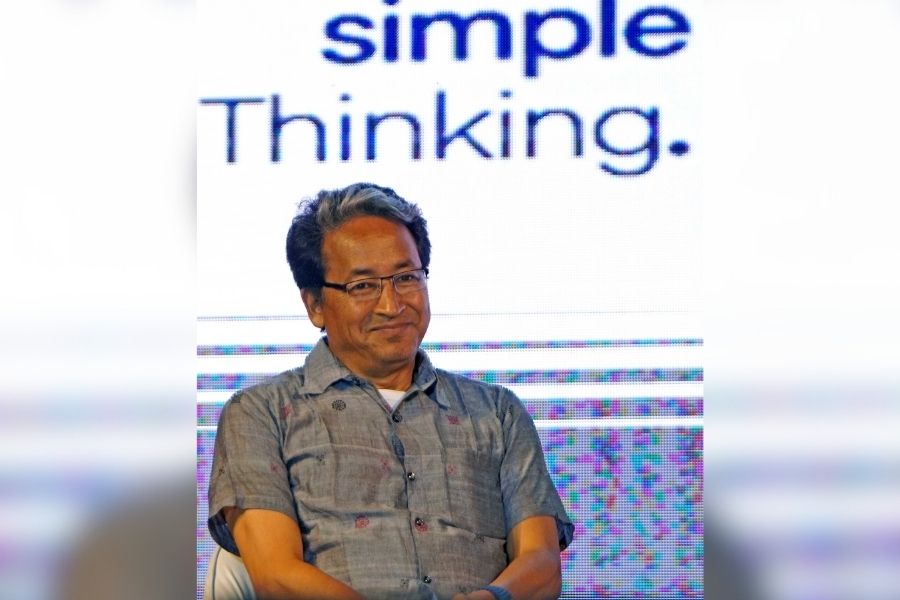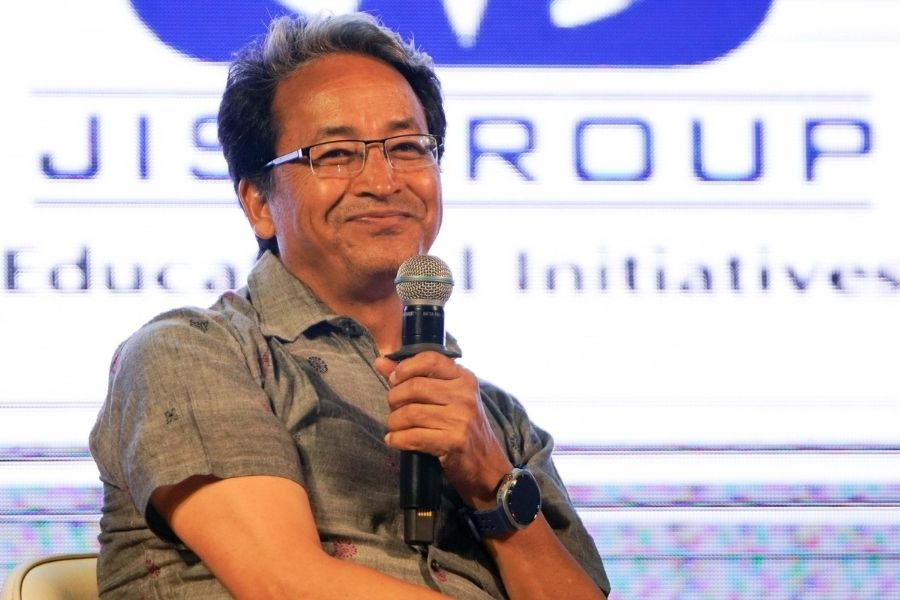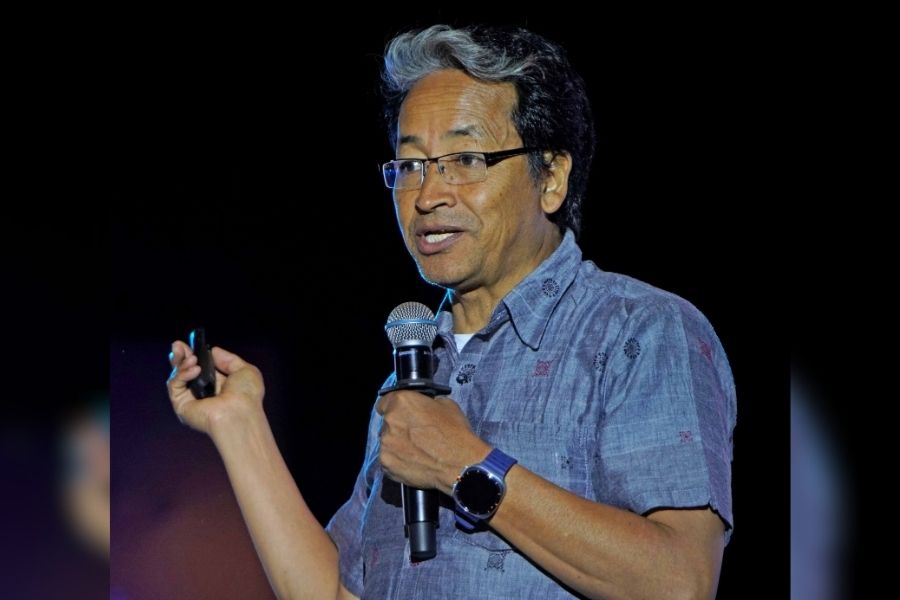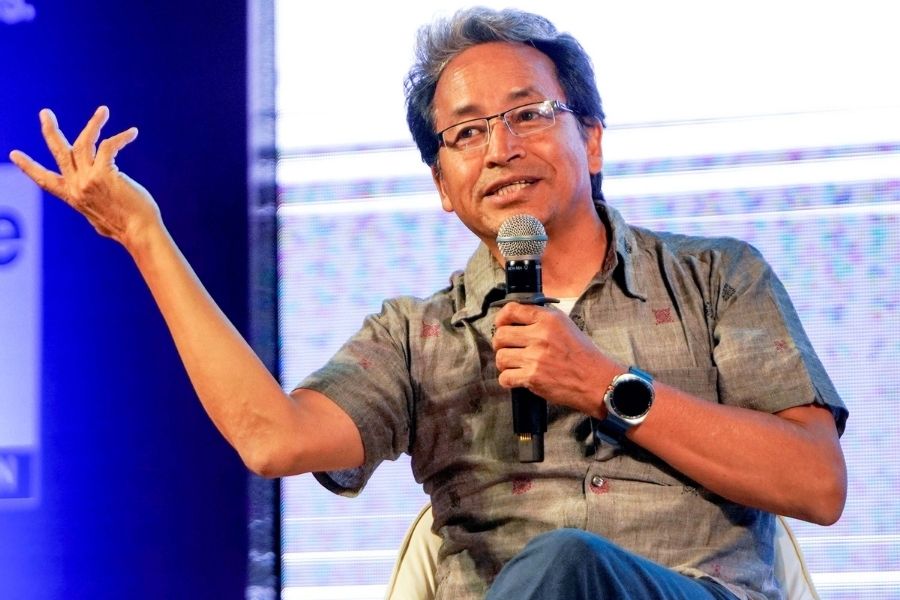Engineer, innovator and founder of the Himalayan Institute of Alternatives in Ladakh, Sonam Wangchuk, was in Kolkata as the chief guest at Made in JIS Celeb Edition, hosted by JIS Group Educational Initiatives at the Dhono Dhanyo Auditorium. My Kolkata caught up with Wangchuk for a conversation about the future of education, responsible leadership and environmental urgency.
‘Teachers must lead, not follow’

‘Teachers must be creators, problem solvers, and visionaries. The country must invest in them like it does in any national infrastructure,’ Wangchuk said
Wangchuk made a strong case for transforming the education system by placing teachers at the centre of national progress. “A teacher can shape generations. But if we don’t invest in teachers, entire generations will be destroyed,” he said, adding that teachers must not only deliver the curriculum, but embody the qualities of innovators and leaders.
He stressed only the most capable minds should be drawn into the profession — individuals who can inspire by example and not merely through textbooks. “Teachers must be creators, problem solvers, and visionaries. The country must invest in them like it does in any national infrastructure.”
He added that teaching should be seen as a strategic profession — not a fallback. “You can survive a bad engineer, even a bad doctor. But a bad teacher? That can ruin an entire generation.”
Bengal and the burden of comfort

Bengal, Wangchuk observed, now risks falling into what he called a ‘third generation curse’
Once hailed as the intellectual capital of India, Bengal, Wangchuk observed, now risks falling into what he called a “third generation curse.” He explained that the first generation rises through struggle, the second continues that legacy if it values it, but the third — often raised in comfort — may forget the meaning of progress altogether.
“The children of prosperity are often shielded from challenges, and that’s what kills their potential. Adversity builds character. We must not protect our children from every hardship — we must prepare them through it.”
He warned that intellectual stagnation is a real threat when societies stop valuing effort. Conscious parenting and exposure to real-world challenges, he said, are crucial to raising future-ready leaders — not just degree holders.
The climate crisis is closer than we think

Describing glaciers as ‘banks of water,’ Wangchuk warned that they are rapidly vanishing
At the press conference following the event, Wangchuk turned his attention to the Himalayan climate crisis. Describing glaciers as “banks of water,” he warned that they are rapidly vanishing. “Forests are the next buffer. But when you lose both, you’ll have floods during monsoon and bone-dry riverbeds in spring,” he said.
He criticised the blind push for infrastructure and settlement in ecologically fragile areas under the guise of national security. “There will be no development if there is no water. Don’t copy those making short-sighted choices across the border. Make them see reason. Together we are destroying Asia’s water towers.”
Wangchuk’s words weren’t just an appeal for change — they were a roadmap. Invest in teachers. Encourage conscious entrepreneurship. Prepare the next generation for adversity, not comfort. And above all, treat nature not as an obstacle to development, but as its foundation.
